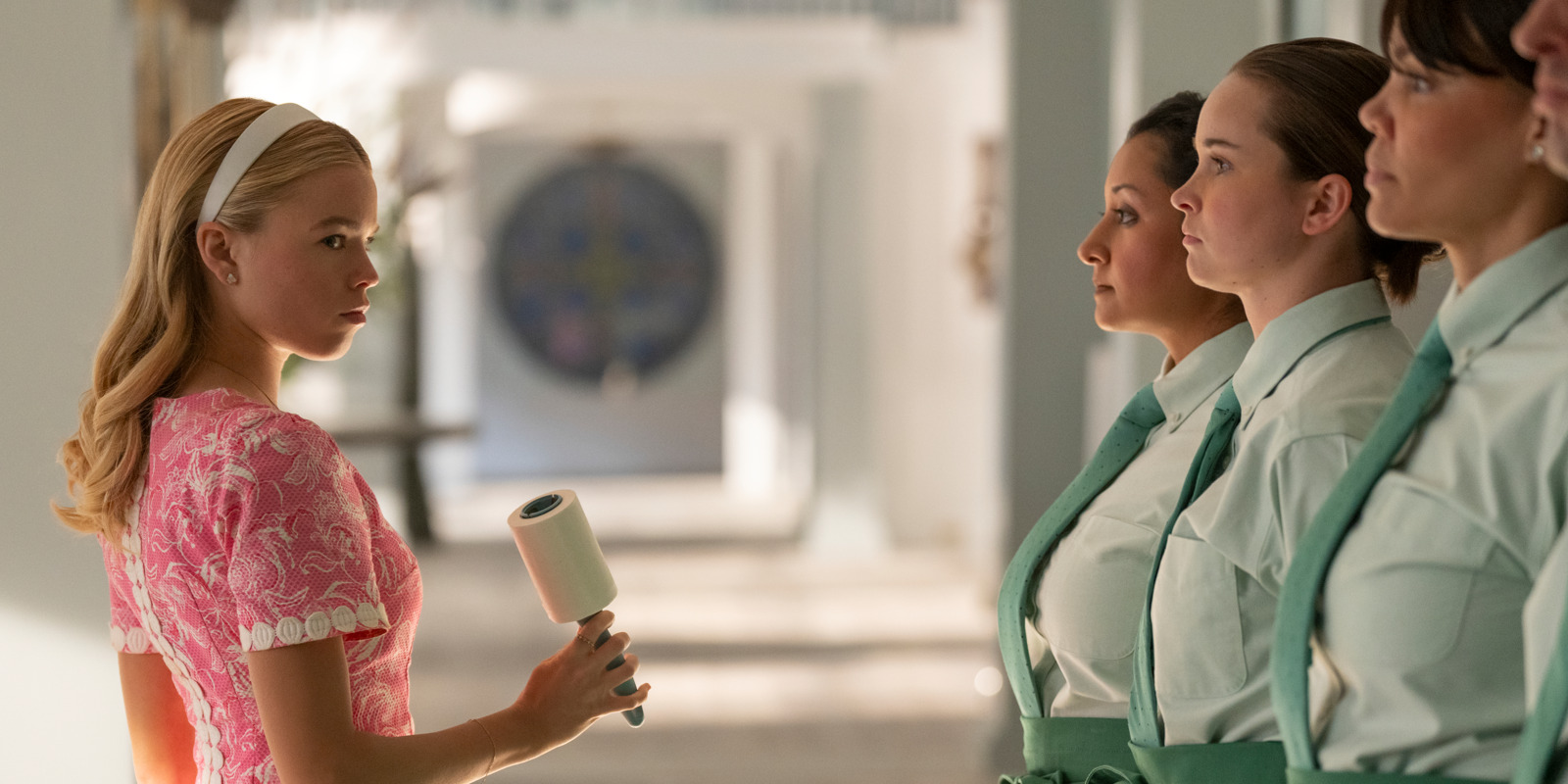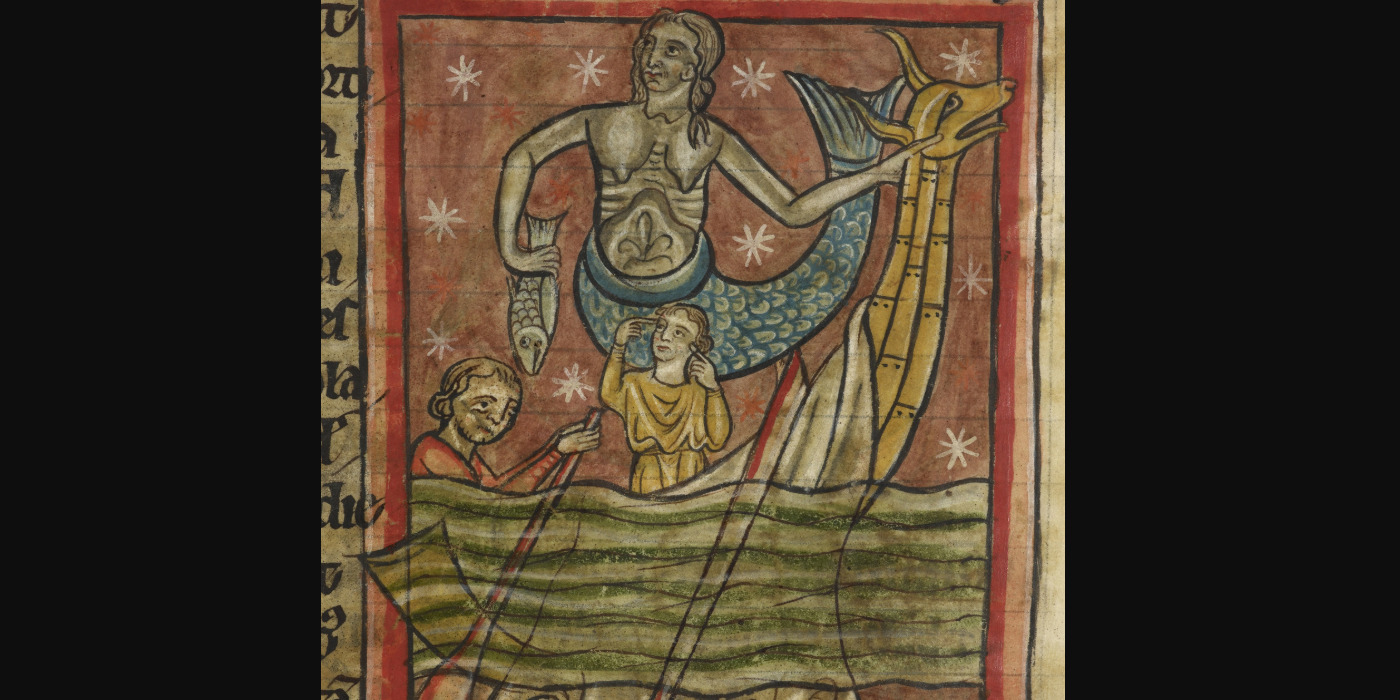In Netflix’s eerie comedy show’ Sirens,’ the audience is transported to a luxurious island where one weekend ends up changing the trajectory of many lives. Michaela Kell, married to the wealthy Peter Kell, is more or less the ruler of the island’s Cliff House and its grand estate. She has an unconventionally close relationship with her live-in assistant, Simone, who is slowly but surely taking after her boss, dedicated to her cult-ish inner circle. As a result, when her older sister, Devon, decides to show up on the island for a surprise visit, Simone’s life turns upside down.
The former has been growing concerned over her sister’s life for some time, especially since she started ignoring her text messages containing one word, “Siren.” Naturally, Simone’s newfound transformation under the enigmatic Michaela convinces Devon that the enchanting woman must have put her sister under an actual enchantment from which she needs to be saved. All of these elements, paired with the thematic center of the show, directly play into its all-encompassing title. SPOILERS AHEAD!
Sirens: Devon and Simone’s Emergency Distress Signal
Devon’s character introduction arrives as she’s exiting the local police station after a night in the lockup. Her already downtrodden state is made further miserable by the numerous unread texts she has sent to her sister. All the messages contain just one word: SIREN. It’s later, once the older sister has traveled all the way to the Cliff House in her righteous fury, that the meaning of these texts is revealed. Instead of a warning or a sign between the two sisters, Siren is actually an SOS code meant to indicate an insurmountable problem. It’s a desperate call for help that comes with the expectation that the other would drop everything and reach out to the sender’s rescue.

Nonetheless, Simone, caught up in her new world with Michaela, overlooks this signal, essentially abandoning a metaphorically drowning Devon. The origin of this code word between them remains unknown, though it could have come from the first ever instance when one of them needed to be rescued. When the two were young kids, their mother committed suicide by flooding her car with carbon monoxide. She was planning on taking a seven-year-old Simone out with her, but the latter was saved thanks to Devon, who found her in the nick of time.
It’s possible that the “sirens” are a reference to the warning alarms of the car that could have been instrumental in Simone’s rescue. Regardless of the code’s origin, it stands as a sign of trust and faith between the two sisters. Yet, when things with their father’s dementia get bad enough to almost push Devon past her threshold, and she reaches out to her sister, she’s only met with infuriating silence. This blatant betrayal of the trust between them highlights the severity of the detachment that Simone has imposed on her past and, thereby, her family. By Michaela’s side, she’s pursuing a new future for herself, one in which she can’t afford to prioritize Devon or her neglectful father.
Sirens: The Show’s Thematic Connection to Greek Mythology
Although the SOS code between Devon and Simone is a crucial element within their stories, it’s only a small part of the bigger picture that informs the show’s title. For the most part, ‘Sirens,’ as a title, is a reference to the fabled beings from Greek Mythology. The show deliberately paints its narrative in moments of ethereal otherworldliness to add a fantastical feel to the overall story. Furthermore, it dances around tragedies, highlighting themes of fate, morality, hubris, beauty, and a number of other motifs associated with Greek myths. With it comes the more blatant implication that the central women in the story, particularly Michaela, are Sirens of some sort. From the divine background harmonies to her reign over a scenic island, all of it points toward the same parallel.

In mythology, Sirens are often depicted as half-human women, half-fish (sometimes half-bird) who lure sailors and other men into their traps with their heavenly voices. These entrapped men were almost always fated for death or worse. The myth of the Sirens has taken many shapes over time, but can be most easily found in Homer’s popular epic ‘Odyssey.’ In the tale, Odysseus and his fellow Argonauts sail past the Land of the Sirens with their ears plugged with beeswax to escape the tempting song of the enchanting women. The protagonist, himself, is the one exception who, in his curiosity to know what song would be used to beguile him, has his men tie him to the ship’s mast as a means of outside restraint.
No matter what story the Sirens make an appearance in, they are almost always depicted as evil women who entice men toward their doom. This same imagery is repeatedly imposed upon the female characters of ‘Sirens,’ whom their male lovers almost always try to blame for their own misfortunes. Michaela is treated as an evil second wife who ruined the lives of Jocelyn and her kids, even though Peter is the one who chose to pursue her despite his marriage to the other woman. A similar thing happens to Devon, who has a habit of falling into bed with her married friend, Raymond, while Simone gets turned into the villain in Ethan’s story for refusing to turn their summer fling into an abrupt engagement.

In all these instances, the women are treated as sirens who have supposedly entrapped Peter, Raymond, and Ethan in their current circumstances. In doing so, they are vilified and demonized while their partners are allowed to bear the cross of innocent victimization. Michaela’s character, in particular, wears this metaphor throughout the story as Devon and the others consistently perceive her as a mystical monster who uses her beauty and influence to lay a stake on Peter’s wealth and brainwash young women like Simone. Nonetheless, as the rest of the story proves, her monstrous perception is simply a tool used for the convenience of other characters.
Read More: Sirens: Is the Cliff House a Real Place? Is Kell Securities a Real Hedge Fund?


